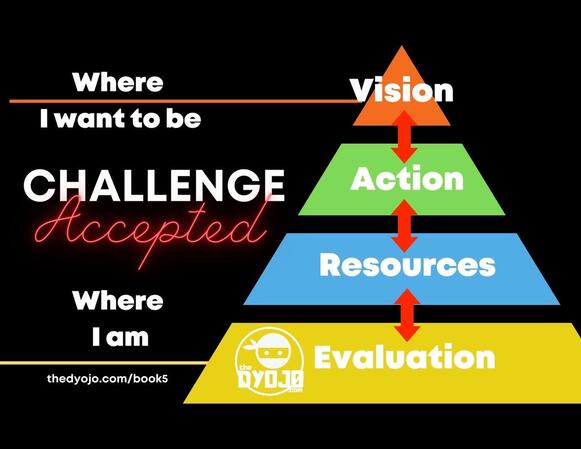|
What you believe (mindset) will shape what you do (habits). If you have a mindset that what you are doing now doesn’t matter, and by not caring or being engaged you develop lackadaisical habits in your school working ethics, these will be hard to break when you enter the workforce. Poor perspectives lead to lazy habits and these elements combine to create mediocre working habits. You don’t have to be a genius, a nerd, or a brown noser to be successful in school or at work. But, your attitude and level of effort now will carry into the workplace and likely into your relationships. For most of us, how we do one thing is also how we approach most things. If you half-ass at school, you likely do the same in sports, work, relationships, and anything else you are involved in. The Habits for AchievementYou probably think this isn’t true. But try me. See if trying a little harder at school doesn’t translate to trying a little harder in sports, elevating your effort at work, and even being more engaged in your close relationships. Pursuing new opportunities requires you to:
You cannot achieve new things without gaining new knowledge, improving your skills, and elevating your abilities. If you are wasting all the free education and opportunities being presented to you now, you will develop a blindness and deafness for recognizing them in the future. Everything you can learn and do, school, sports, volunteering, mentorship, etc. is free or low cost now. If you aren’t taking advantage of them you are being foolish. Be more present and appreciate what other people are saying to you, doing for you, and investing in you.
0 Comments
If you went way back in time, people groups were primarily agrarian. They lived off of the land. The effort put into working the soil, growing crops, and taking care of animals was directly tied to your ability to survive. Think of all the things we take for granted today, those were not around:
If you are hungry, you go to the grocery store or a restaurant. Those are fairly new elements of society. In prior generations, you wouldn’t buy bread, you harvested grain and made your own. You would top that with butter that you churned yourself and jam from wild berries. As technology advanced and societies evolved, work is more associated with making money to buy food rather than being directly involved in raising food. If you were a farmer raising you own food, you worked as long as you needed to in order to accomplish this task. If you didn’t work, you didn’t eat. A Brief History of WorkThe Industrial Revolution brought significant changes and factory work became prominent. People working in factories around 1867 were pulling 12 to 14-hour shifts, often six days a week; or 72-84 hours a week. That same year, Illinois was one of the first states to pass a law calling for a standardized 8-hour work week. The first occurrence of this becoming the norm was for government workers in 1869. It was until 1926, when the Ford Motor Company established a five-day, 40-hour workweek for its workers. Owner Henry Ford declared, “It is high time to rid ourselves of the notion that leisure for workmen is either lost time or a class privilege.” In 1938, congress finally passed the Fair Labor Standards Act, making the 8-hour work day and 40-hour work week the law of the land. Employers are allowed to ask you to work more than 40 hours and you may find some advantages in doing so. If you work more than 8 hours, in most jurisdictions, you are working overtime which is usually 1.5 times what your regular rate is. For example, if your hourly rate were $20 per hour, if you worked 45 hours in a week you would have 5 hours of overtime that would be paid at $30 per hour.
Putting In Extra Time at WorkWhen I first started working for a local restoration company in Ventura, California, I was on the mold removal team. If you’ve ever seen green or black stuff growing on a wall in your house, my team would be the ones that suited up, set a containment area, and removed the bad stuff. Our workday was 730am to 330pm, I was going to night school and had a daughter on the way. I noticed some of my team members in another division would get after-hours calls to respond to water damage in local homes and businesses. When I found out they were getting paid a bonus to go plus their overtime I asked to be put on that list immediately. Life is about opportunity, not convenience. If I was willing to be on-call for one week every 6 weeks, I often could make close to two weeks (or more) pay. This was money that I was able to use to pay cash for my associate's degree in criminal justice and tackle the debt from having a baby. Another cool thing you will learn, even if you have health insurance, there are still things you have to pay for when you have a medical procedure or create a human. Finding the Right Work TeamFinding a quality team to work with makes the reality of work more enjoyable. Four questions to help you determine if you're on the right team:
Money is important, but like many things in life it is a tool. The more you learn about how the tool of money works and how to apply it to your situation, the better you are able to use it to build the life that you want. A New Book for Young WorkersThis content was adapted from the new book from The DYOJO and Jon Isaacson titled, Challenge Accepted: An Open Letter To Young People Entering The Workforce. Watch the video to learn more about Challenge Accepted. An overview for some of the pathways to a good career that don’t require a college degree to get started. Can I find a good job without a degree? Can I find a good job without a degree? Most professionals didn’t know what they wanted to do right away. The majority of those who did go to college are working in a field that is outside of their college major. This doesn’t means that college has no value but the idea that going to college will guarantee success is a false one. Conversely, not attending college does not mean that you are a going to be failure. If you want to pursue a good career but aren’t sure if college is the path for you, there are options. Questions you might be asking if you are unsure about college.
Help finding a job without a college degree.A college degree may make your resume more presentable and possibly give you an upper hand on other applicants but it does not guarantee employment. If you don’t know what to do, why not find an entry level position for a job in a field that peaks your interest? You can provide for yourself while you are figuring things out and you may find something you enjoy. Service based industries such as retail, food and construction are always hiring. You may get rejected or you may get hired. If you get rejected ask them what you would need to do in order to make yourself a more appealing applicant. Continue to seek out opportunities in fields that interest you. Keys to dealing with employment rejection:
Explore career pathways through the skilled trades. Skilled trades are eagerly looking for candidates. Skilled trades are eagerly looking for candidates. In the not so distant past, it was common for young people to enter into an apprenticeship program as a career pathway. In the simplest terms, apprenticeship means you are learning from someone who has experience in a skilled trade so that you can learn that trade and thereby earn a living doing the same. In most areas the formalized apprenticeships are offered through labor unions for work including electrical, plumbing, automotive, mechanical and construction. Companies in the construction industry that provide services including: property restoration, remodeling, asbestos abatement, landscaping, roofing, painting, HVAC and so forth are eagerly looking for applicants who are trainable. If you can bring the character traits of being honest, hard working and willing to learn you will find that there are opportunities to build an enduring career for yourself. Find your local community college career center.There are so many resources out there for people looking for employment. A simple search of “employment resources”, “career assistance” and/or “job opportunities” with your area will pull up options for local help. Your local community college will have resources for community members, even if you are not a student, such as these from Pierce College in Puyallup, Washington:
Learn to succeed by attending a trade school.What is a trade school? According to The Simple Dollar, “A trade school, also known as a technical or vocational school, is an educational institution that exists to teach skills related to a specific job.” Attending a trade school can provide specific training in a field that often can lead more directly into immediate work opportunities. Trade schools often are less expensive and require less time to complete. There are trade schools for various industries including animal science, business, legal, medical, technology and skilled trades. Reach out to a temporary employment agency.If you need to work but aren’t sure what you want to do, applying with a staffing agency is a good way to find short term assignments that allow you to try multiple jobs. Temporary labor is utilized by various industries to fill needs during their busy seasons, seasonal work and to fill needs within their organization. Some staffing companies, such as Staffing Partners in Eugene, Oregon, will even provide assistance with basic skills and training to help prepare you for success with a local company.
Seek out local, county and statewide employment assistance.There are agencies in your city, county and state that are set up to help you succeed in your employment search. In Washington state Monster.com, a popular job search website, has partnered with state, local and nonprofit agencies to provide training and employment help. This outlet is titled WorkSource offering, “Job seekers access to thousands of jobs and advanced job-search tools to find career opportunities more easily.” Pursue job skills help from the federal government.Another option includes programs funded at the federal level such as Job Corps. These programs offer hands-on training in growing industries. While Job Corps targets persons between the ages of 16 and 24, the requirements beyond that are rather broad. Eligibility includes a commitment to improving your future and the need for job skills training to get you started on your career pathway. Programs like these often do not cost the participants anything and can provide those that complete them with skills as well as a clear pathway to gainful employment. There are many paths to success, intentionally develop yours.There are many ways to make mistakes. As long as your mistakes do not include violating laws, ethics or human decency, most of these errors will not permanently hinder your life path. You can choose to learn from your own mistakes or you can be wise and learn from the mistakes of others. The important thing is to learn so that your mistakes are not wasted. Similarly, there are many ways to achieve success. The important thing is to try to chart a vision for where you are headed and what you want to be. This is a lifelong pursuit and will evolve as you develop personally as well as professionally. There are so many opportunities out there. The first step is the most important, move forward and keep going.
Video of article written for izvents.com on Advancing through trust. Do you think about personal improvement and career development? Maybe these words can help you. Maybe. Trust is currency in the business world. How them can an individual optimize trust into professional advancement? Read more (if you know how) 👉 http://www.izvents.com/words/advancing-through-trust
|
AuthorThoughts on personal and professional development. Jon Isaacson, The Intentional Restorer, is a contractor, author, and host of The DYOJO Podcast. The goal of The DYOJO is to help growth-minded restoration professionals shorten their DANG learning curve for personal and professional development. You can watch The DYOJO Podcast on YouTube on Thursdays or listen on your favorite podcast platform.
Archives
March 2023
Categories
All
<script type="text/javascript" src="//downloads.mailchimp.com/js/signup-forms/popup/unique-methods/embed.js" data-dojo-config="usePlainJson: true, isDebug: false"></script><script type="text/javascript">window.dojoRequire(["mojo/signup-forms/Loader"], function(L) { L.start({"baseUrl":"mc.us5.list-manage.com","uuid":"b9016446bd3c6a9f0bd835d4e","lid":"83282ffb9e","uniqueMethods":true}) })</script>
|
Jon Isaacson |
Connect. Collaborate. Conquer.
© COPYRIGHT 2015. ALL RIGHTS RESERVED.
|







 RSS Feed
RSS Feed